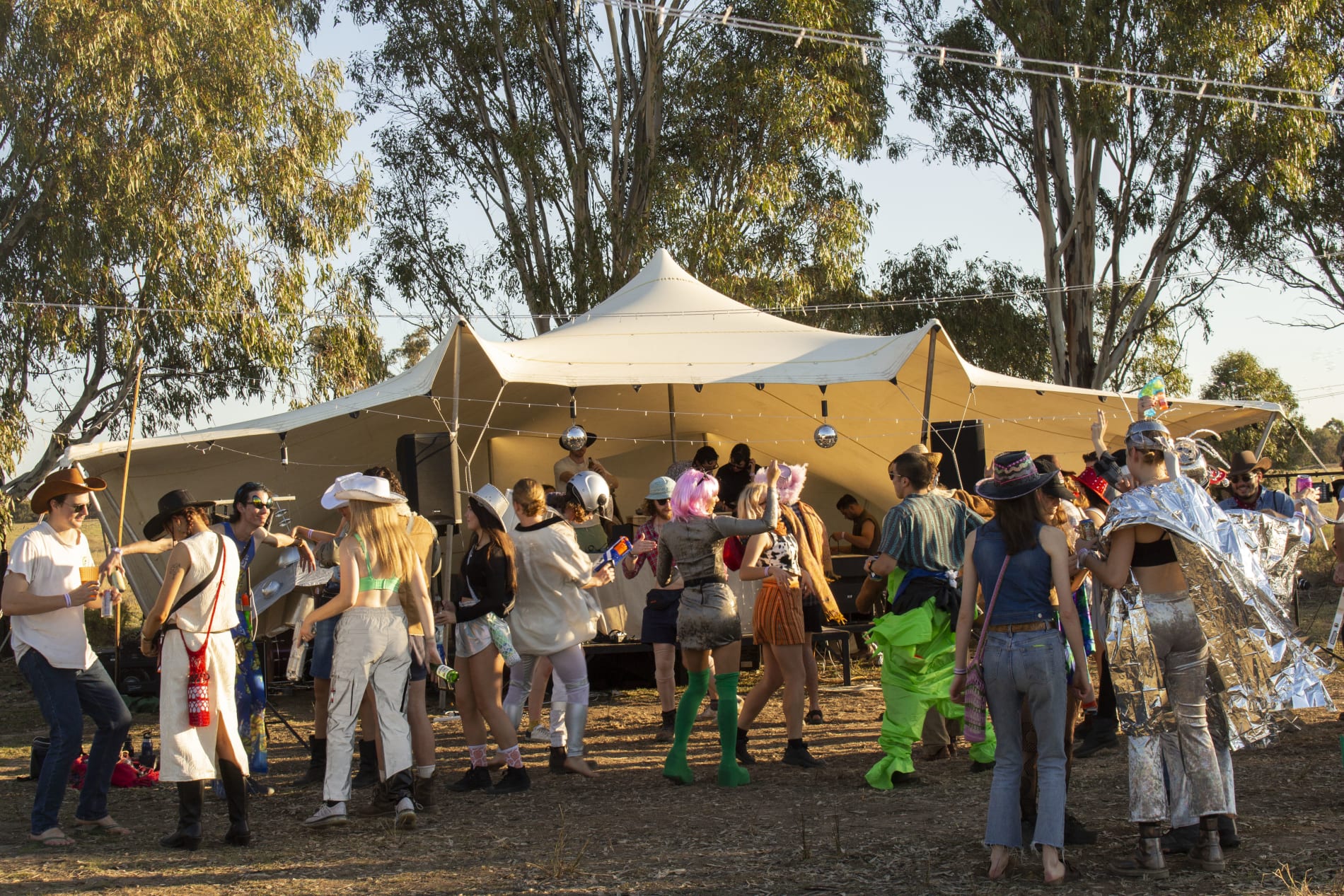
Read the Charter of Independence here.
BY PHILIPPA SALMON
The Australian music industry was deeply affected by the COVID-19 pandemic. Lockdowns resulted in a complete shut-down of live music, and the cancellation of thousands of festivals and gigs.
However, for some young Australians the experience acted as a catalyst, triggering them to organise their own festivals celebrating and promoting emerging artists.
Karan Shah was one avid festival-goer who decided to take matters into his own hands. He and his friends decided to organise small outdoor gigs between lockdowns as a way to socialise safely.
These events grew into festivals with ticketing, professional sound, lighting and paid performers. For musicians like Chris Chamberlain and Tom Poyser, the events provided a supportive space to perform and connect with like-minded people.
“I just wanted to organise a big social event, because my friends and I hadn’t been able to get together for a long time,” Mr Shah said.

He and two other organisers booked a large campsite in the country, packed a gazebo, a couple of speakers, DJ decks and some fairy lights. Around 70 people came along, donating money to help cover the costs.
“It was simple, but people loved it. We started thinking ‘How can we do more? How can we grow?’”

Mr Shah said, while it was initially difficult to find a location for such a large event, those who had been to previous festivals helped with contacting farmers and looking into potential campsites.
“We’re now set up nicely for future festivals because we have all these potential contacts and properties to use,” Mr Shah said.
The event was the biggest he’d organised, involving three full days of music, including a combination of both DJs and live acts.
“We put a lot of effort into curating the music, and tried really hard to make sure there was a bit of everything on every night,” he said.
“It’s a labour of love."

Mr Shah and the other organisers all have full-time jobs and the events do not make a profit. Instead, he said they are run with the purpose of creating a community of people who share a passion for music, and to give musicians the chance to perform.
“I just love the community vibe. Often we’re rushing around like headless chickens during the event, but people are so happy to help out, and if we ask anything of anyone, people always step up,” he said.

These events are often held in rural locations with limited reception, so they are an opportunity for people to disconnect from their phones and spend quality time together.
The organisers also provide different activities for people during the day, including painting and games like ring toss.
“We just want to make sure everyone feels safe and welcome. We even started organising wellbeing officers, and they were really popular, which is fantastic,” Mr Shah said.
“We had people messaging us afterwards saying ‘that was the best weekend of my life’.”

Mr Shah was not alone in this observation. A study by YOUNG Journal found a significant number of young music-makers reported spending more time focusing on music during lockdown, learning new skills and creating music, without the interruptions of daily life and work.
“I only started after the first event we organised, and I know so many others who have also picked it up over lockdowns," he said.
"Every event we’ve had more DJs, and we’re especially stoked to have a lot more female representation on the stage."

After lockdown, 'Waliens' lead singer Chris Chamberlain said he became incredibly grateful for any opportunity to perform.
“The first few gigs you play together as a band are really important, and we didn’t get to do that," Mr Chamberlain said.
"Events like Amphitheatre are a brilliant opportunity to get a new audience and meet some really nice people."
An RMIT University study found the loss of in-person events during lockdown created huge difficulties for musicians without well-established audiences. It described the music industry as a “highly networked sector, where connections to other people are vital in finding work and establishing a reputation.”

During lockdowns the band used a shared google drive for their song ideas, to collaborate remotely. While Mr Chamberlain said he found this system worked well, it wasn’t the same as being able to practice and perform in person.
“I’ve always loved performing. However, what’s changed recently, possibly as the result of lockdown, is that I enjoy it on another level when I get the sense that the audience is having fun too,” Mr Chamberlain said.
“It’s a really special feeling,” he said.

Musician Tom Poyser said events like Amphitheatre gave him the confidence to expand his repertoire and try-out new instruments and styles.
He said he loves playing music, and has experimented with everything from piano to guitar, including both singing and playing the harmonica.
“Small-scale festivals are great because they’re more down-to-earth and an intimate sort of setting," Mr Poyser said.
"I find when I’m playing at bars, it's sometimes really hard to feel motivated because often the crowd just doesn’t get around it in the same way. It can feel a bit like you’re playing to dead people."

A Leisure Sciences study found that for many, music festivals are crucial for reinforcing social and communal identities, as well as feelings of belonging. Listening to and playing music was also found to be one of the most effective strategies for coping with stress for University students.
Mr Poyser said it was the feeling of friendship and connection that kept him performing.
“I feel so supported, and the amount of energy is just insane,” Mr Poyser said.
“It really just gives me a space to be myself.”